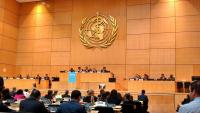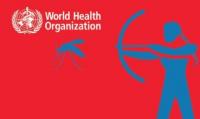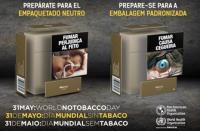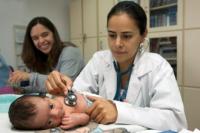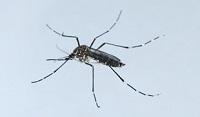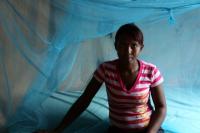You are here
News
-
06/03/2016 - After a week of extensive debates, the 69th Session of the World Health Assembly ended on May 28, in Geneva (Switzerland). The last day of discussions included topics that had been part of the agenda of the WHO for more than four years, such as the Framework of Engagement with Non-state Actors (FENSA), whose resolution was headed by Argentina.
-
05/31/2016 - Based on current assessment, cancelling or changing the location of the 2016 Olympics will not significantly alter the international spread of Zika virus. Brazil is 1 of almost 60 countries and territories which to date report continuing transmission of Zika by mosquitoes. People continue to travel between these countries and territories for a variety of reasons. The best way to reduce risk of disease is to follow public health travel advice.
-
05/24/2016 - Dramatic gains in life expectancy have been made globally since 2000, but major inequalities persist within and among countries, according to this year’s “World Health Statistics: Monitoring Health for the SDGs”. Life expectancy increased by 5 years between 2000 and 2015, the fastest increase since the 1960s. Those gains reverse declines during the 1990s, when life expectancy fell in Africa because of the AIDS epidemic and in Eastern Europe following the collapse of the Soviet Union. The increase was greatest in the African Region of WHO where life expectancy increased by 9.4 years to 60 years, driven mainly by improvements in child survival, progress in malaria control and expanded access to antiretrovirals for treatment of HIV.
-
05/19/2016 - "Calling all superheroes. This is not a drill. Our communities have been invaded by dangerous mosquitoes and we need help." With those words, Cartoon Network Latin America is launching "Mission Zika," an educational campaign to raise awareness about Zika in Latin America, using Public Service Announcements that raise awareness about Zika and means of prevention.
-
05/19/2016 - A number of countries of the Americas have made progress in implementing tobacco control policies designed to reduce suffering and death due to tobacco. Yet much remains to be done to halt the spread of a product that kills approximately a million people per year in the Region.
-
05/13/2016 - On the anniversary of Florence Nightingale's birth, May 12, the Pan American Health Organization/World Health Organization (PAHO/WHO) is observing International Nurses Day this year by calling on its member countries to transform nursing education as part of their efforts to advance toward universal health.
-
05/13/2016 - More than 80% of people living in urban areas that monitor air pollution are exposed to air quality levels that exceed the World Health Organization (WHO) limits. While all regions of the world are affected, populations in low-income cities are the most impacted.
-
05/13/2016 - The World Health Organization (WHO) and the Pan American Health Organization (PAHO) recognize that athletes and visitors are seeking more information on the risks of Zika and ways to prevent infection while attending the 2016 Rio Olympic and Paralympic Games (5 August to 18 September 2016).
-
05/10/2016 - The House of Representatives approved the text of the headquarters agreement between Brazil and UNASUR, signed in Asuncion in 2012, for the operation of the ISAGS. The project still must be voted in the Senate.
-
04/28/2016 - Malaria initiatives that demonstrate concrete technical and programmatic changes geared towards malaria elimination and the prevention of its re-establishment are eligible to compete in this year's "Malaria Champions of the Americas" contest, which gets under way on World Malaria Day, April 25. The nomination deadline is June 20.

